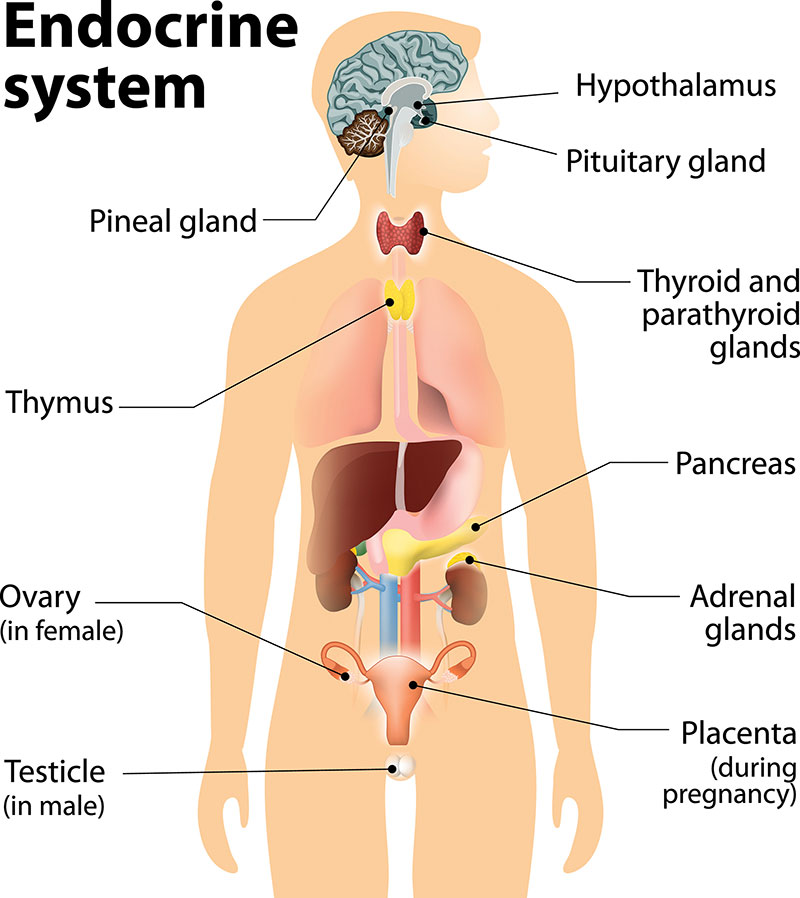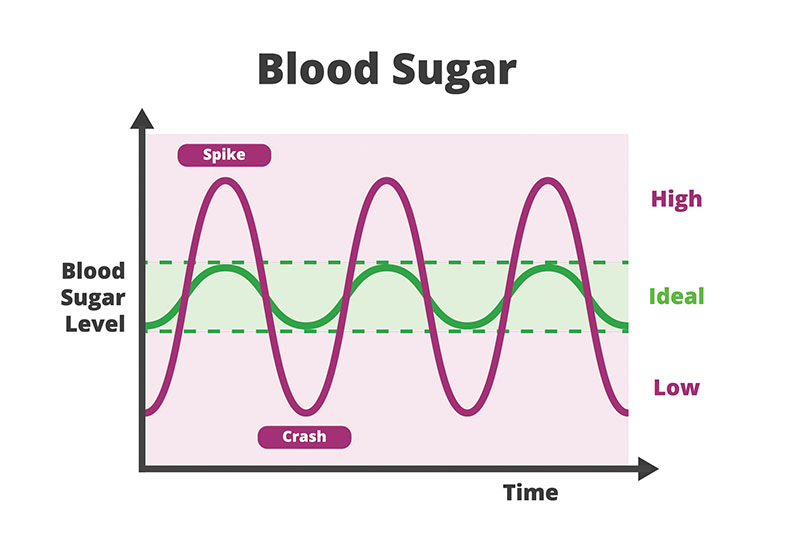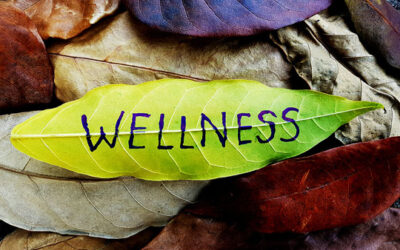Our hormones are part of what is called the endocrine system
The endocrine system is a series of hormone producing glands located throughout the body from head to groin. Some produce sex hormones like oestrogen which declines through perimenopause and some produce stress hormones like cortisol.

Stress Hormones
Stress hormones in small amounts are quite good for us and have an anti-inflammatory effect when released in short bursts for short periods of time. For example, when you wake up, it is cortisol that gets you out of bed in the morning.
When stress hormones are constantly being released over long periods of time due to stressful situations, poor diet or feeling overwhelmed at home or at work, feelings of anxiety, fatigue and insomnia can be exacerbated.
It is useful to know how to buffer our stress hormones because we can’t always control what is happening on the outside, but we can influence what happens on the inside. In other words, you may not be able to change your stressful job, relationship worries or busy family life at this moment in time, but there are food and lifestyle choices that you can make to help your inner world and health.
Eating for hormone health is eating for blood sugar balance
You may or may not have heard of the term blood sugar balance. It is when glucose enters our blood from the food we have eaten and is used by our cells as energy.
When we eat high-sugar foods or simple carbohydrates – including soft drinks, biscuits, chocolate, crackers, white pasta or rice – the glucose from those foods enters our blood stream very quickly. We get a short burst of energy from these foods, but it doesn’t last for very long; the short energy spike drops quite fast and can leave us feeling tired, irritable and in need of more energy soon after. This can then push us to seek the next sugar or caffeine hit to keep us going, and so the cycle continues.
This process plays havoc with our hormones. When our blood sugars spike and drop like this consistently due to eating a diet high in sugars and simple carbs, we release the hormone insulin and the stress hormone cortisol. Remember, cortisol released over long periods isn’t good for us – much less a person who is experiencing significant hormonal symptoms like headaches, IBS, brain fog, fatigue, lack of sleep, low mood and weight gain.

Sugar cravings are a sign you might need to work on your blood sugar balance
Here’s how to support hormone health with some simple dietary choices:
Protein helps buffer sugar absorption. Sources such as all meats and fish, eggs, tofu, nuts, seeds, lentils, beans and quinoa make good protein choices. When added to a meal or snack, they help buffer sugar from entering the bloodstream too fast. By eating a protein source with every meal and snack you are supporting your hormone balance.
Fibre works in a similar way to protein. Fibre-rich foods such as vegetables, fruits, beans, lentils, nuts, seeds, whole grain breads, pastas and rice, all buffer glucose from entering the bloodstream too fast and causing hormone havoc through blood sugar spikes.
Reduce caffeine. Caffeine is ok for most people in small amounts; however, drinking more than two cups per day of a caffeinated hot drink can impact on your hormone health. For some people, even one cup of a caffeinated drink can ignite heart flutters and IBS and impact on sleep. If this sounds familiar, caffeine probably isn’t for you, and it will be adding to the stress on your body and hormone health.
Hydration works to keep us healthy and alive! When dehydrated, symptoms like heart palpitations, bloating, indigestion, constipation, brain fog, irritability, low mood and headaches can present themselves. Couple these symptoms with your perimenopause and they can become heightened. Your first port of call when looking to improve your hormone health is to check your hydration – aim for 1.5 litres per day, of water and herbal teas. Avoid drinks containing sugar, caffeine and alcohol.
Other ways to manage stress
What you eat can play a role in managing stress and so can adopting certain lifestyle changes and activities.
Your nervous system works in a complex way and when you remain in a stressful fight or flight state for long periods of time it can become very worked up – into what is known as ‘sympathetic dominant state’.
Ideally, we want to work on cultivating a ‘parasympathetic dominant state’. This is the part of our nervous system which helps our hormone balance and helps us to cope better with life’s challenges – including through the perimenopause and menopause.
Things that help your parasympathetic nervous system to become more dominant:
- Meditation
- Singing
- Restorative yoga
- Tai chi
- Deep breathing
- Time in nature
Tips for when you are at work to work on your inner calm for hormone health:
- Rest and digest – try to manage breaks so you have time to digest.
- Go outside when you can and take three deep breaths or more.
- When you are walking from room to room, slowly breathe in and count to four, hold for three, and slowly breath out for four.
- Eat for energy balance – include protein and fibre in each meal and snack.
- Feed and fuel yourself – eat foods that are rich in vitamins and minerals rather than nutrient deficient foods like processed foods.




